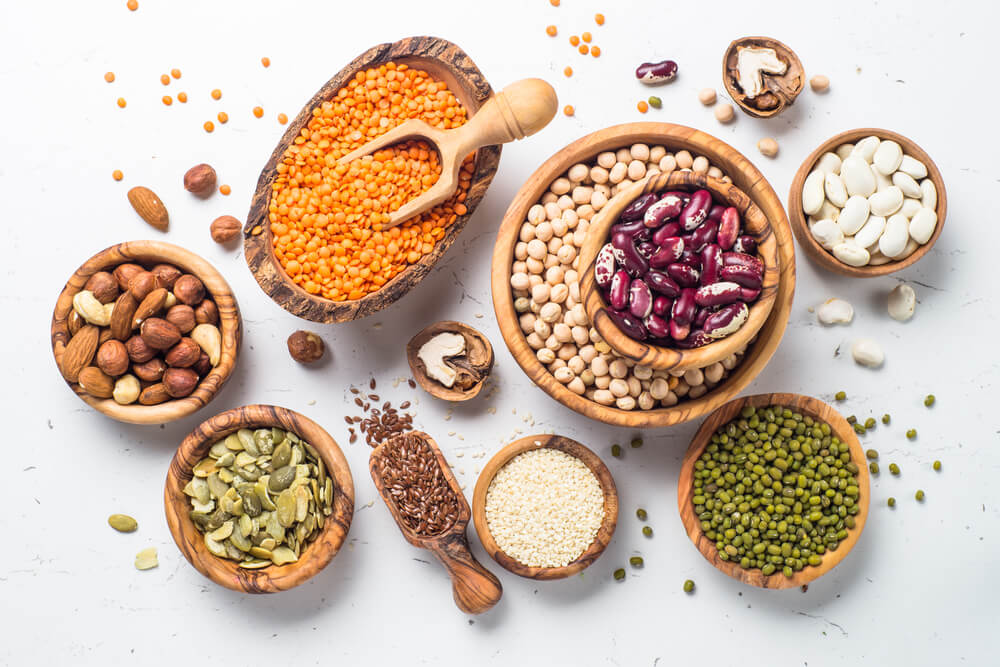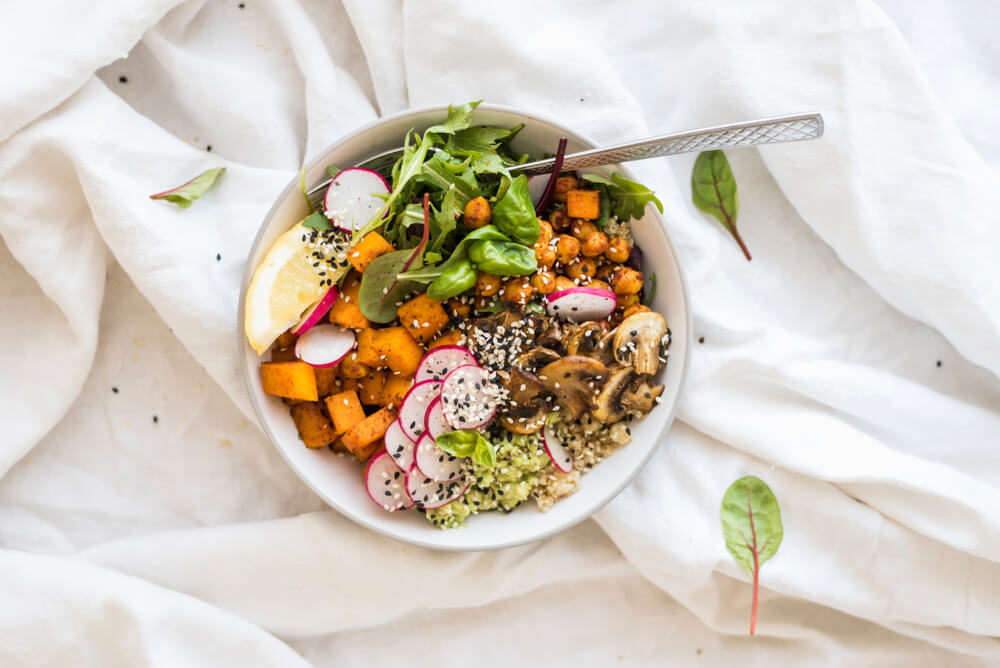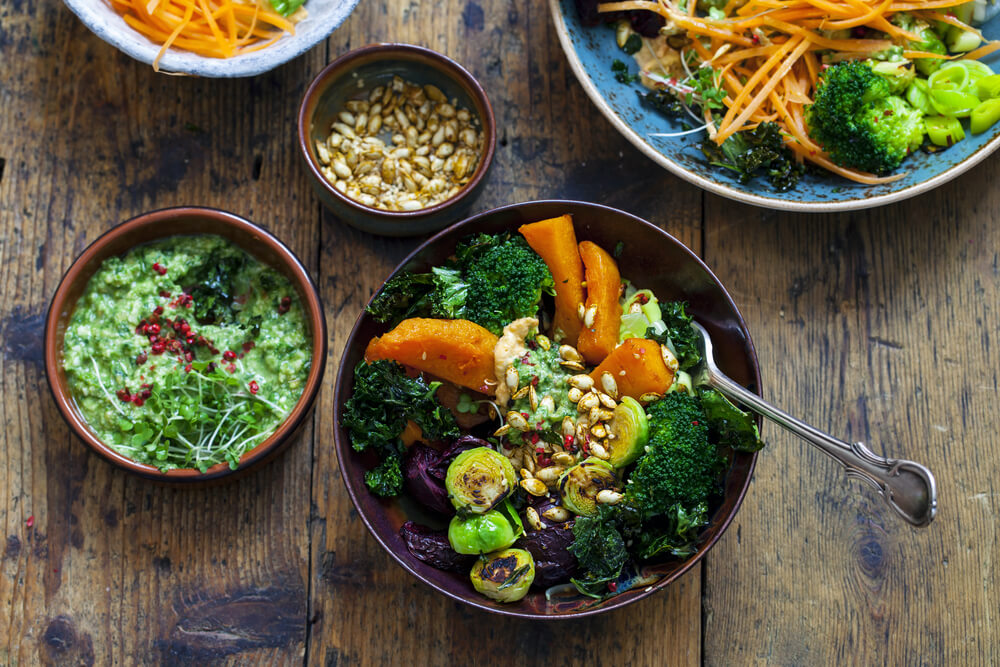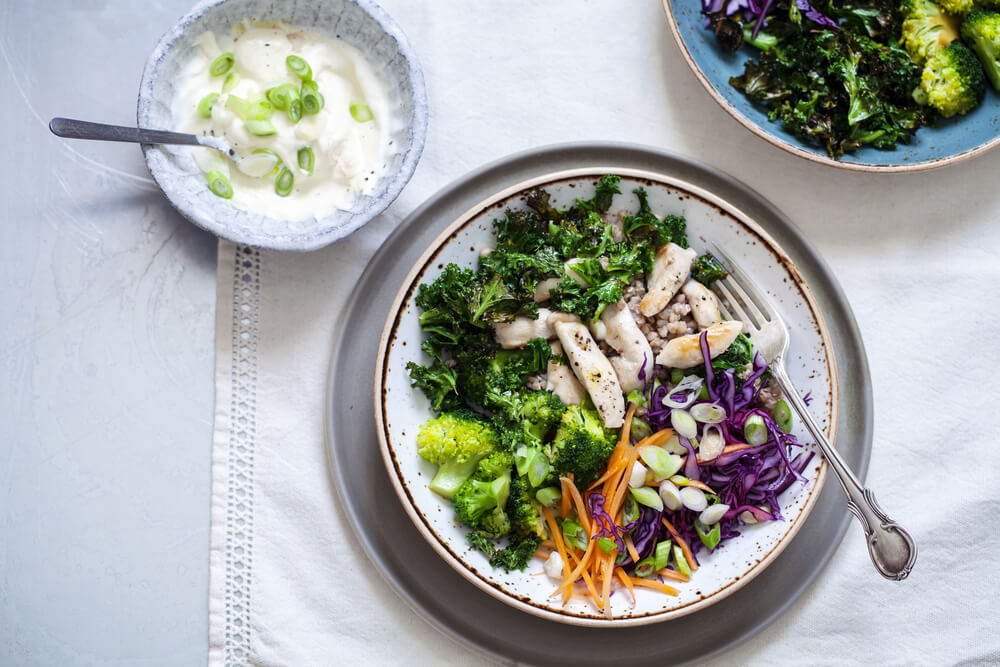Older adults have different diet needs and restrictions than younger populations. If you’re an older adult considering moving to a vegetarian diet, you may also be wondering if there are risks to go with the benefits.
In all, vegetarian diets are not very popular with seniors. A 2016 poll by the Vegetarian Resource Group indicated that just 1.8% of Americans age 65 and over currently follow a vegetarian diet. Furthermore, only 2.7% of people age 55 to 64 reported eating a vegetarian diet. But as details about the health hazards of excessive meat intake become clear and the benefits of plant-based diets are more commonly known, more older adults are interested in what a vegetarian lifestyle can do for them.
Is a Vegetarian Diet Safe for Seniors?
Put simply, the answer to whether a vegetarian diet is something seniors should consider is yes. There aren’t many risks associated with a plant-based diets, but there is one caveat. To ensure that you get the right levels of protein and other essential vitamins and minerals, vegetarian seniors have to eat a wide variety of foods.
For example, eliminating meat from your diet could lead to a significant decrease in protein intake if you don’t start replacing it with protein-rich vegetables. Protein is vital in building and maintaining muscle mass, so you’ll want to incorporate plenty of legumes, nuts and seeds into your diet as a meat replacement.
Fish, meat, poultry, eggs and milk are also sources of vitamin B12 and calcium. In the case of B12, the body often times does not absorb it as well with age. Cutting it out of the food you eat can have consequences to your health due its function in making DNA and keeping nerve and blood cells healthy. If you move to a vegetarian diet, you should talk to your physician about supplements of even B12 injections to help maintain a healthy supply.
When it comes to calcium, you’ll need to replace foods such as dairy with calcium rich green vegetables such as turnips, broccoli, kale, collard greens and spinach. These foods will help maintain your bone health and prevent effects from osteoporosis.
What are the Benefits of Being Vegetarian?
Older adults can see a wide range of benefits from switching to a plant-based diet. For one thing, vegetarian diets can positively impact or prevent the development of chronic conditions such as cancer, diabetes, hypertension and heart disease. A vegetarian diet tends to be lower in cholesterol and saturated fat, so vegetarians typically have lower blood pressure and cholesterol levels while having an easier time maintaining a healthy body weight.
Vegetarian diets can also improve the activity of the enzyme located at the end of a chromosome known as telomeres, the decline of which is closely tied to aging. Increasing their activity has the welcome effect of slowing down the aging process.
Other benefits of going vegetarian include:
- Increased energy
- Improved cognitive function
- Healthier skin
- Lower stress
- Higher quality sleep
- Improved immune function
If you’re considering the shift to a plant-based diet, that’s ultimately a good thing for your health and will help you age more gracefully. While you do need to replace the most beneficial elements of animal-based foods in your diet, it can be done with the right mix of supplements and enjoying the vast array of fruits and vegetables at your disposal.






